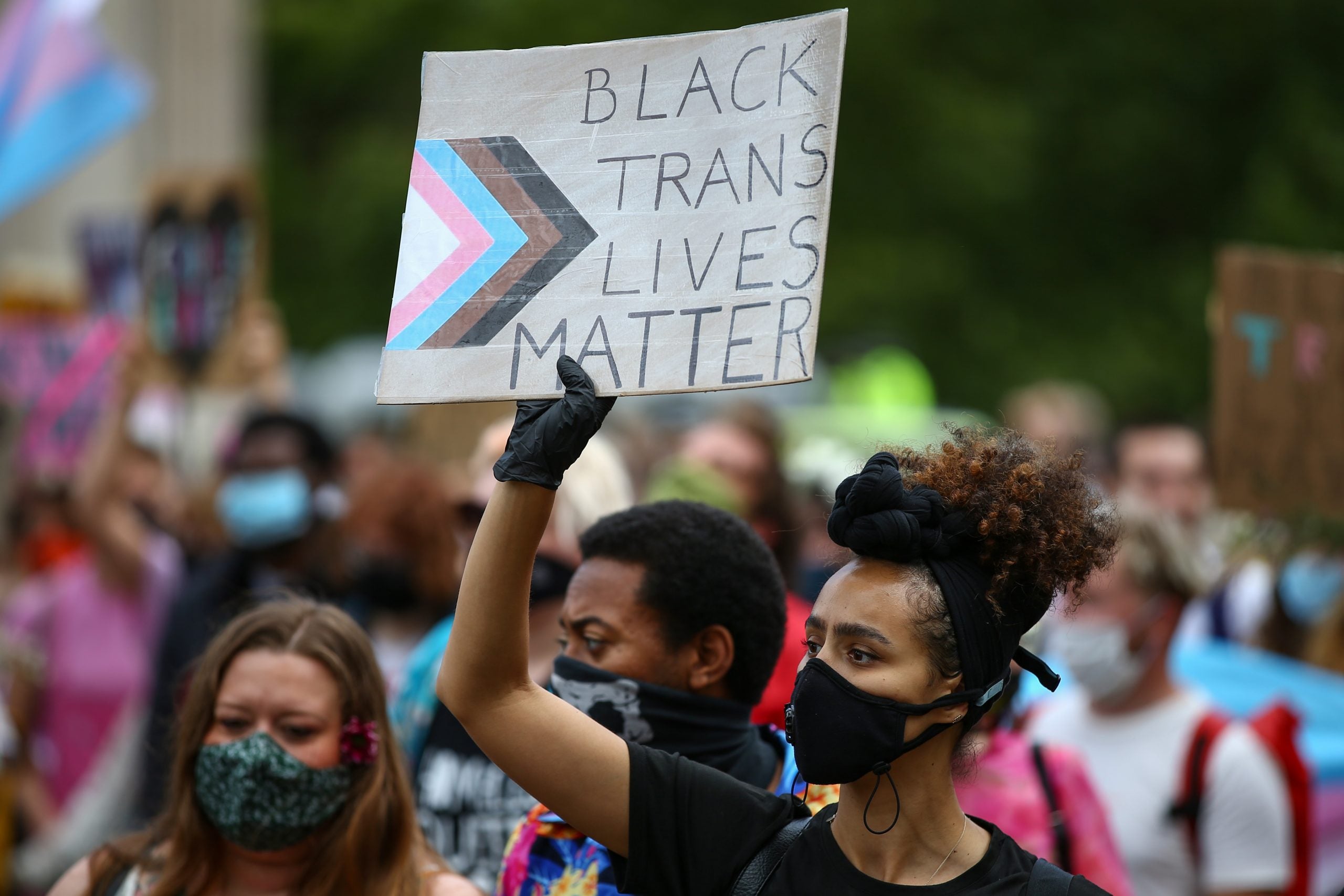
Community members, allies and advocates are among those commemorating Transgender Day of Remembrance today (November 20), designated to honor transgender people who have lost their lives in acts of anti-trans violence.
A record number of transgender and gender nonconforming people have been killed nationwide this year, activists told ESSENCE, the majority of them Black transgender women.
“With 42 trans, gender nonconforming, and nonbinary people stolen from us that we know of, 2020 has been the deadliest recorded year for our community to date,” said David Johns, executive director of the National Black Justice Coalition. “While Black people know the sting of bias, stigma and violence, this is especially true for our Black and Latinx sisters and femme identified members of our communities. We call attention to this epidemic of violence because it is too-often ignored, because hostile legislation and policy make it worse, and because it must end.”
There are nearly 1.4 million LGBTQ Black adults in the U.S., totaling 12 percent of the overall LGBTQ population, according to data from The Williams Institute, UCLA School of Law. Gender-identity hate crimes have increased, according to new FBI statistics; there’s been an uptick from 4.2 percent in 2018 to 4.8 percent in 2019. In 2017, a report from the National Center for Transgender Equality, Black Trans Advocacy Coalition and NBJC indicated nearly two-thirds of Black trans people surveyed had experienced mistreatment from police, including verbal harassment, physical assault, and some instances of sexual assault.
The Human Rights Campaign (HRC) has collected data on trans violence since 2013. The organization’s educational foundation released “An Epidemic Of Violence: Fatal Violence Against Transgender and Gender Non-Conforming People in the United States in 2020.” The report details how stigma, racism and sexism are harming the trans community, from employment discrimination and inadequate health care, to increased poverty, homelessness and violence.
In October, HRC President Alphonso David joined Minneapolis City Council Vice President, Andrea Jenkins–part of a small, but growing number of trans elected officials nationwide–to launch a “Pledge to End Violence Against Black and Brown Transgender Women.” Part of HRC’s Transgender Justice Initiative, it asks elected officials to take decisive steps to deliver life-saving change and LGBTQ equality.
President-elect Joe Biden is vowing to address these issues when he and vice president-elect Kamala Harris enter the White House.
“Transgender rights are human rights,” Biden said in a statement marking Transgender Day of Remembrance, an annual event that is part of Transgender Awareness Week. “To transgender and gender-nonconforming people across America and around the world: from the moment I am sworn in as president of the United States, know that my administration will see you, listen to you, and fight for not only your safety but also the dignity and justice you have been denied.”
While a host of Black LGBTQ advocates and organizations are doing work nationwide, certain groups are highlighting trans issues. According to ABFE.ORG, a Black philanthropic advocacy organization, they’re numerous. Some include: the Center for Black Equity in Washington, D.C., and Marsha P. Johnson Institute in California. Black Trans Media in Brooklyn; Brave Space Alliance in Chicago; and TGI Justice Project in San Francisco. Arkansas has both The Knights & Orchids Society, and the Griffin-Gracy Educational Retreat & Historical Center, aka House of GG.
Additionally, there are Black trans and queer philanthropic funds: Black Trans Travel Fund, The Contigo Fund’s All Black Lives Fund, the Black Trans Fund and Southern Power Fund, to name a few.
Advocates say supporting their efforts is critical. Foundation dollars for Black LGBTQ causes in the U.S. reached a record $7.4 million in 2018, according to Funders for LGBTQ Issues and ABFE. Still, it represents just 5 percent of all LGBTQ funding in the country.
This week, the Kresge Foundation announced $30 million in new grant commitments to support anti-racism efforts across the country. Its investments in more than 50 local and national organizations includes $235,000 for the Black Trans Fund, based in San Francisco. Detroit, New Orleans, Memphis and Fresno are other cities in which the grants will be used to confront racial and social inequities.
“The Black Lives Matter movement has made abundantly clear that progress in our country requires a forthright acknowledgement of the longstanding and deeply entrenched impediments to full equality, justice and inclusion,” said Rip Rapson, CEO/President of the Kresge Foundation. “But it also makes clear that we must move further to dismantle… the insidious policies, practices, norms and attitudes embedded in virtually every facet of our society, our economics, our politics, our lives.”
Johns hopes that the nation will remember trans, gender nonconforming, and nonbinary people who have passed on–including longtime activist and griot, Monica Roberts, to all the Black trans lives that mattered. And those who are still alive.
“We have to prioritize protection, fight shame and stigma, and do the work of healing, so we no longer need to remind people that our trans family deserves to be here. Nobody should live in fear of being their authentic self,” he said. “Especially not now. Not ever.”